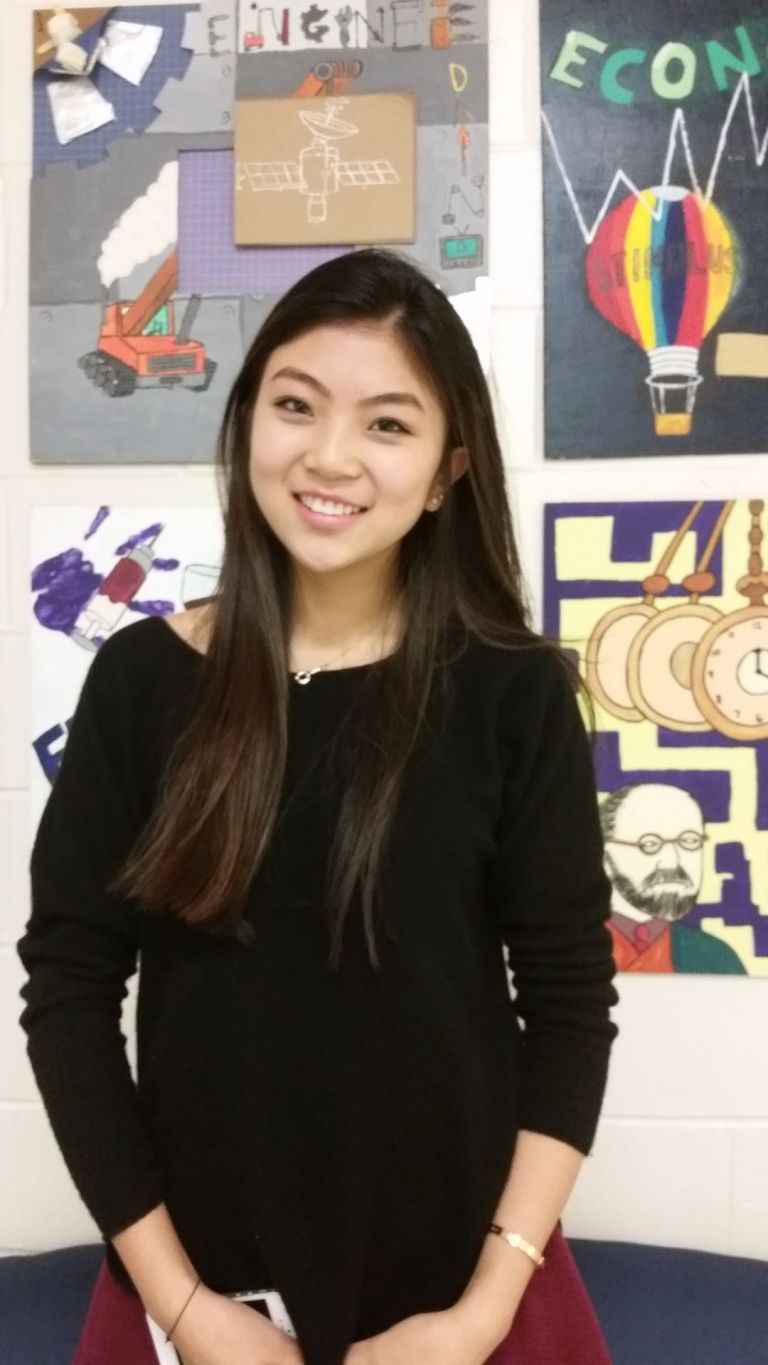
Roslyn High School senior Tiffany Sun did not place in the 2015 Intel Science Talent Search competition, which concluded Tuesday in Washington D.C.
Sun, 17, whose project studied the impact of several factors on one’s decision to rescue people tied to a set of train tracks, was one of five Long Island students to reach the final round of the annual competition.
Despite not taking home a first prize of $150,000, a $75,000 second prize or a $35,000 third prize, Sun received $7,500 as one of the contest’s 40 finalists and $1,000 as a semifinalist.
Four Roslyn School District students were named semifinalists in the contest, tied with the Great Neck School District for the most on Long Island.
“To have four [semifinalists] is certainly an honor, but to have four out of seven? That’s a tremendous percentage,” said Allyson Weseley, the Roslyn School District’s director of secondary research, in January. “But my seven were all strong. All could have been contenders.”
Sun could not be reached for comment Wednesday.
The Intel Science Talent Search annually awards more than $1.6 million in research prizes.
Past winners include eight Nobel Laureates, five National Medals of Science winners, two Fields medalists and 12 MacArthur Foundation fellows.
“A solid foundation in science, technology, engineering and math creates the critical talent corporations and startups need to drive their business and contribute to economic development,” said Renee James, president of Intel Corporation, in a statement. “We hope this program will encourage other young people to become the next generation of scientists, inventors and engineers.”
Sun’s project, entitled “The effect of SES, Beauty and Disability in the Trolly Problem,” explored the role attractiveness, economic status and disability play in one’s approach to an ethical thought experiment in which one determines whether to rescue five people tied to train tracks by diverting an oncoming trolley to another track with someone else tied to it.
In her experiment, participants would decide on who to save based on whether the person tied to the alternate track – whom Sun presented as female in each exercise – was attractive, in favorable economic standing or in sound physical health.






